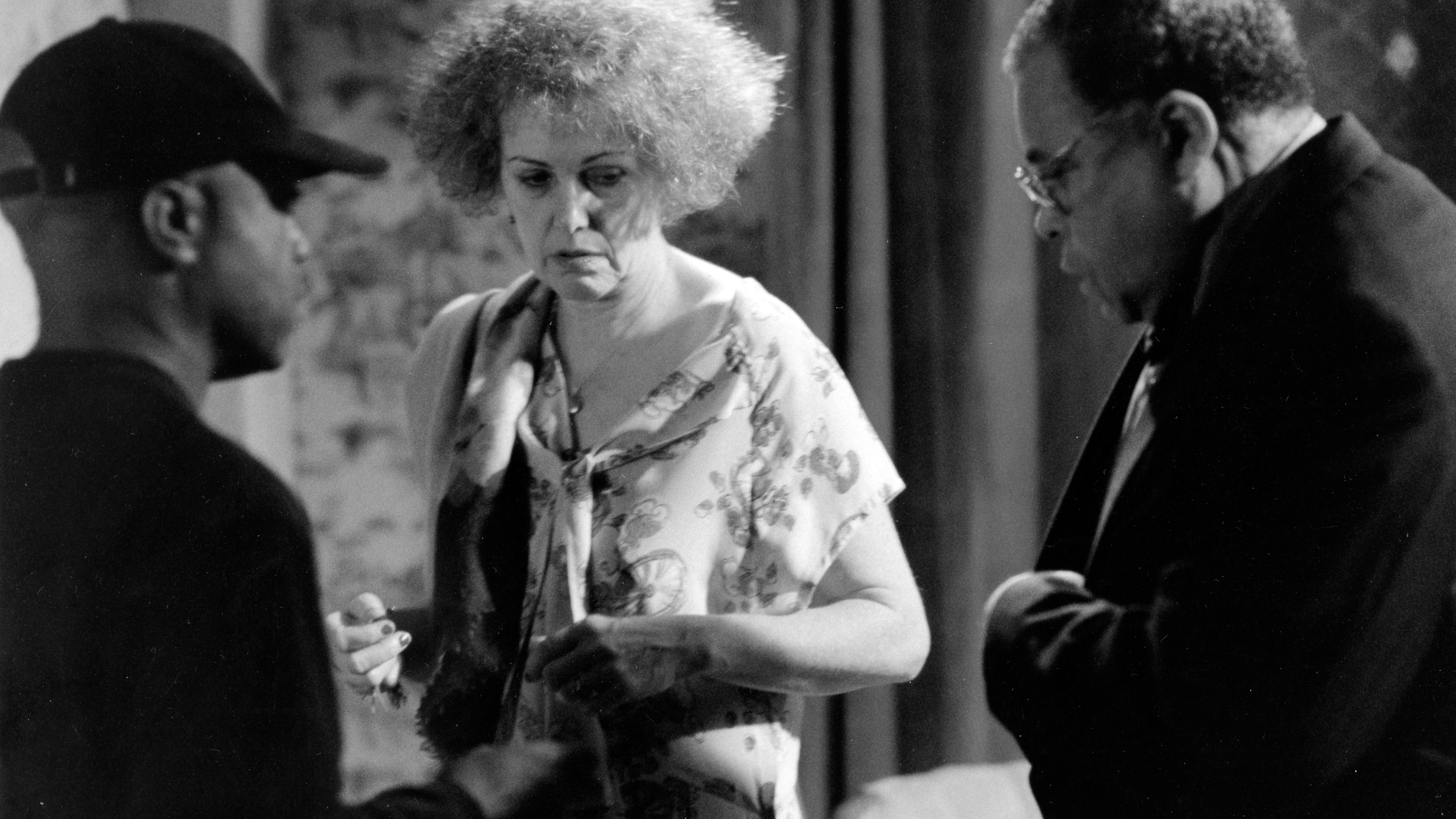Next week marks Charles Burnett’s 80th birthday, which the filmmaker will celebrate tonight in long-gestating style: by premiering the restoration of his “The Annihilation of Fish” in Los Angeles. Burnett first premiered the film at the 1999 Toronto International Film Festival, and for 25 years he’s struggled to get it in front of audiences.
“I’m curious, because it’s been locked away for a very long time for all sort of reasons and you sort of wonder if it’s still relevant, how audiences are going to take it,” Burnett told IndieWire on the eve of his birthday and tonight’s screening.
Tonight’s free screening is part of the UCLA Festival of Preservation, a full circle moment for Burnett, who learned his craft at UCLA’s film school. Fifty years later, his alma mater helped restore a film that, at times, looked like it might be locked in a Technicolor vault forever. There will be more screenings in the coming months, and later this year Kino Lorber will give the film its first proper theatrical run.
The road to tonight’s screening has been a near-constant battle, first led by the film’s producer and tireless champion Paul Heller, who died in 2020 at age 93. Heller’s efforts were later picked up by Milestone, the company responsible for finally releasing Burnett’s 1978 masterpiece “Killer of Sheep” in 2007.
So why has it taken 25 years for yet another film by one of our greatest living filmmakers to finally reach an audience?
The answer is not simple. The well-researched and annotated 25-page history that comes as part of the film’s press notes reads like the Cliff’s Notes of a Kafka novel. According to all involved, the devastating first blow was a scathing review from Variety. “It was screened in Toronto and I remember it going over quite well, but we had a critic that didn’t really care for it, Todd McCarthy,” said Burnett. “And, so that was difficult.”
First reviews are always important for independent films seeking distribution, but in the pre-social media and early days of the internet, a veteran reviewer like McCarthy, writing for Hollywood’s biggest and oldest trade, had an outsized power to scare off distributors.
Liking or not liking a film is obviously a subjective matter, but there is ample historical documentation that “The Annihilation of Fish” was well-received by a majority of those who saw the film’s premiere at the sold-out 500-person theater. Burnett still remembers a number of premieres and screenings in the years that followed that were enthusiastically attended and supported.
Watching “The Annihilation of Fish” 25 years later, and through the lens of Burnett’s body of work, it is impossible to not see the film as an essential chapter in one of the substantial careers in modern cinema. “The Annihilation of Fish” was Burnett’s first attempt at making a comedy, and its absence from his catalog of films would be the equivalent of removing “After Hours” and “The King of Comedy” from filmography of Martin Scorsese, whose Film Foundation helped fund UCLA’s restoration of the film.

The film is the story of an oddball pairing of two lonely senior citizens, played by James Earl Jones and Lynn Redgrave, who together struggle to overcome their delusions — Jones’ Fish character has visions of being attacked by demons, Redgrave’s Poinsettia believes she is the grieving widow of Puccini, the great opera composer.
One of the reasons often cited as to why the film did not find proper distribution in 1999 was that it was out of step with the “urban realism” that was expected from African American filmmakers, as films and TV series featuring Black characters at the time tended to focused on drugs, violence, and guns. But Burnett recalled the film being warmly received when he traveled with it to regional film festivals.
“It did quite well at the limited showings that we did have,” said Burnett. “We had hoped it wouldn’t be too long before it got regular screenings. You don’t want to lose that momentum, [with] the film being in the can for so long.”
Burnett’s most vivid memory of showing the film took place on September 11, 2001, when he and Heller drove down to San Diego to screen the film the day of the terrorist attacks on New York and Washington D.C. “We were expecting it to be canceled because of incidents that happened, and the film screened in two or three theaters to packed houses,” he said. “And at the end of the screening, I asked the audience, ‘We were surprised you would show up on a day like today,’ and they said we needed to be with people.”
In 2007, there was newfound momentum to get the film in theaters. Milestone had success releasing Burnett’s 1978 film “Killer of Sheep,” which screened in 125 theaters, and was quickly recognized as a masterpiece. It is also widely believed to be a major part of modern film canon, placing at number 43 on Sight & Sound’s 2022 list of the greatest films ever made and at number 26 on BBC’s list of the Best American Films. When Milestone wanted to acquire the rights to “The Annihilation of Fish,” Burnett had hope the company could work its magic again.
It’s at this point the matter of the film’s rights became a legal battle. Larry Dodge, who largely funded the film’s $2 million budget, had fallen into financial difficulties prior to dying in 2016. When his widow Kristina passed in 2020, the estate, including the rights to the film, went into bankruptcy.
But the 80-year-old filmmaker refuses to be bitter about how hard it has been for him to get “The Annihilation of Fish” seen by an audience. “Everyone I know who is an independent filmmaker is having similar problems in many ways, trying to get films made and trying to get them distributed, so you don’t really feel like an exception,” said Burnett of the 25-year ordeal of getting his film.

He is, however, sad that the delay means he can’t celebrate tonight with his collaborators, many of whom have since passed away. “I’m just sorry that Lynn Redgrave isn’t here to get her reward, so to speak, for working with us and getting the film made, and having faith and confidence in us to make a good film,” said Burnett of the film’s co-star.
He added, “Same thing with James Earl Jones, and Paul Heller, who worked so hard on everything, and (author/screenwriter) Tony Winkler, all good people, and they should be here enjoying this moment, and I’m sad about that.”




